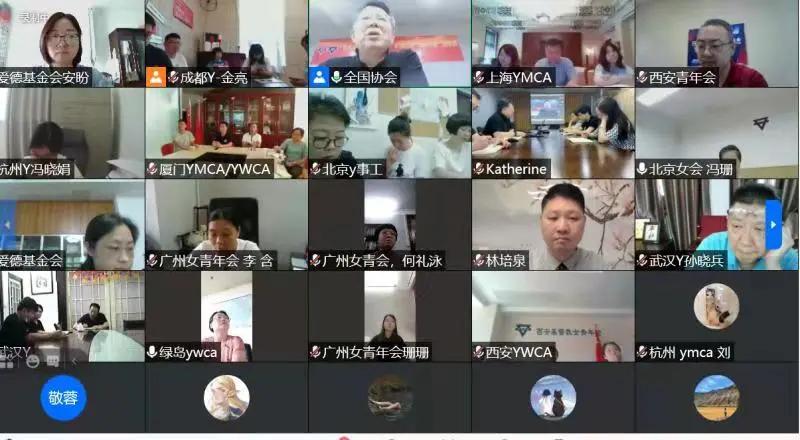The National Council of YMCAs of China virtually held the second phase in a series of training courses in 2021 on "Responsibility in Social Development" last Friday.
Presided over by Wu Jianrong, general secretary of the National Council of YMCAs of China, the training course was attended by more than 50 people from YMCA (Young Men’s Christian Association) and YWCA (Young Women’s Christian Association) in the national council and various cities.
Wu pointed out that in the past few years, 99 Charity Day, a donation campaign initiated by the Tencent Foundation, had spread among a large number of Chinese people as an opportunity for more people to participate in social public charity. However, compared with other social welfare organizations, YMCA had just started and needed continuous improvement.
In addition, the projects were to show that groups would like to take up social responsibility. With the support of the local government, the citywide YWCA and YMCA should discover social needs more extensively to help people in special circumstances in new forms and perspectives, sharing the fruits of social development. As international organizations, YMCA-YWCA in China strived to use non-governmental public diplomacy to enable the world to understand China’s social development, he added.
She Hongyu, associate general secretary of the Amity Foundation, explained the main points of social service projects and the experience of Amity Foundation in a session that covered social service innovation and advocacy projects carried out by YWCAs and YMCAs in Chinese cities in 2021. She reminded attendees to establish projects based on what they were good at, and not to waste resources on projects without good results. At the same time, the products of social organizations also needed to be specialized and differentiated to achieve demand-oriented project planning. Emphasizing that the participation of stakeholders was important, she claimed that the Amity Foundation successfully conducted disaster relief in flood-stricken Henan Province, as it received affirmation from the stakeholders in the material transfer stations which it set up innovatively. Due to the record-breaking rainstorms, the delivery of materials became difficult as water and road transport was blocked.
She stated that YMCAs and YWCAs had advantages and platforms in the activities on 99 Charity Day, so they could improve the cost-effectiveness and expand the scope of projects, such as attracting young people and youth groups to explore cooperation channels in the 17 projects during the Day in 2020.
Wu concluded that participating in social service projects and 99 Giving Day activities was not only about fundraising, but also a learning chance for members of YMCA and YWCA, as the rules of the activities were changed and the forms of the projects were required to be innovated.
Located in Shanghai and registered in the Ministry of Civil Affairs, the National Councils of YMCAs and YWCAs are two social service organizations with independent legal statuses.
"The first YMCA in China was established in 1885 by American Christian missionaries in a Fuzhou church School", according to Nanjing YMCA&YWCA. The Young Women’s Christian Association was first brought into China by an American, with their first school established in 1890 in the city of Hangzhou.
- Translated by Abigail Wu












